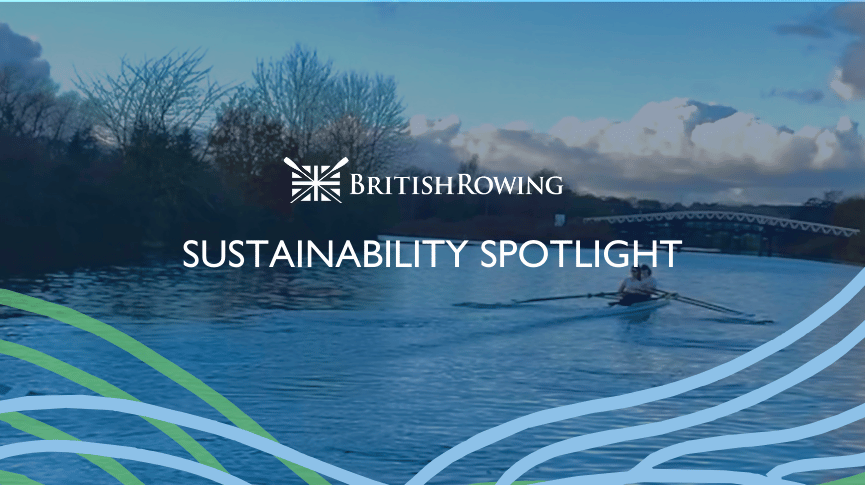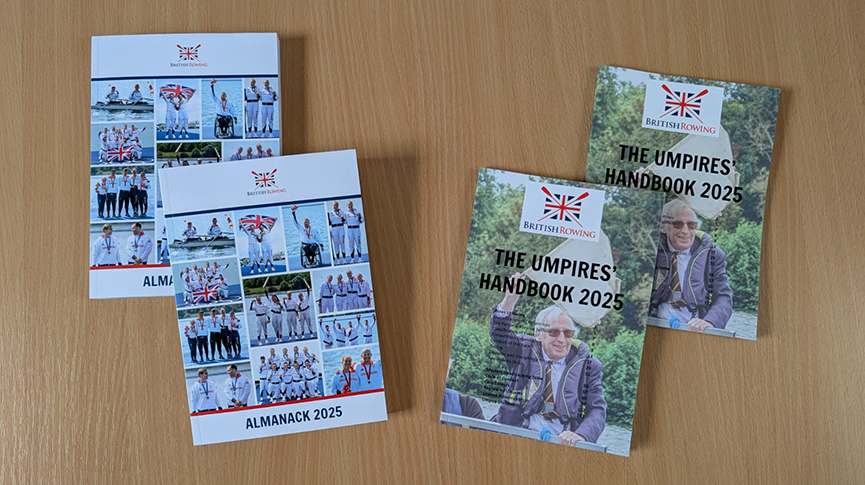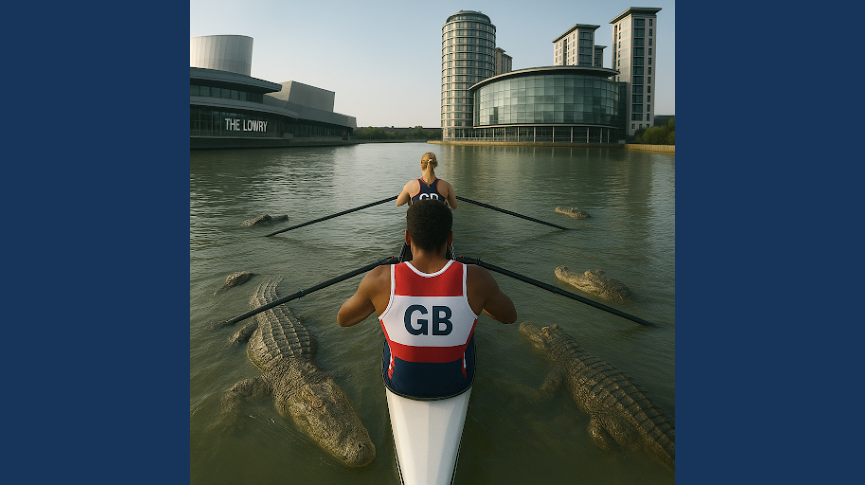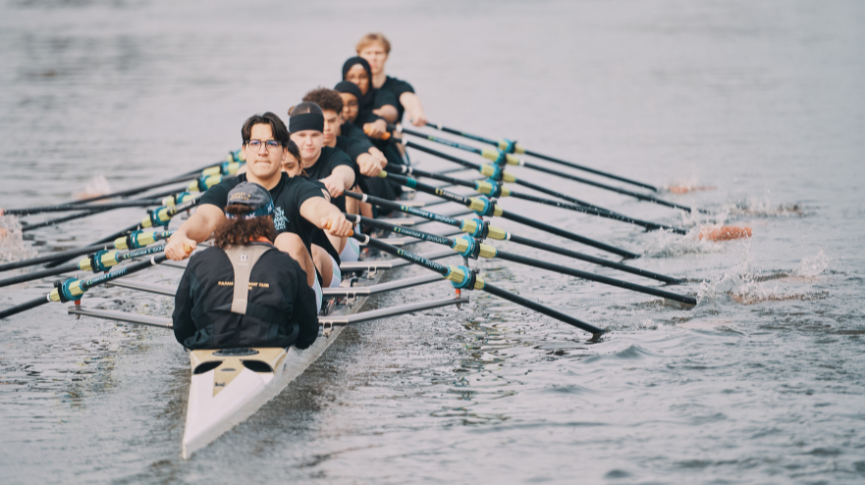Michael Lapage: A miraculous life
By Michael Lapage’s own estimation, there was something miraculous about him winning a silver medal at the 1948 London Olympics. Because it was a miracle he was still alive.
Having learned to row on the waters of the Avon, where he was in the Monkton Combe School eight from 1940-42, Lapage’s ambition of making the Light Blue boat at Cambridge was put on hold while he served his country in the Second World War as a pilot in the Fleet Air Arm – a commitment that very nearly killed him.
“I was involved in reconnaissance and air-to-ground strafing,” he recalls. “I was in the Mediterranean in 1944 supporting the invasion of southern France, and the following year I was based in the Far East.
It was a miracle I escaped
“In the Far East I was flying Hellcats. I had a Japanese Zero on my tail at one time. He was coming down very fast – and Hellcats were a lot slower than Zeros. I was climbing, and I did a very sharp turn to port, turning into his approach. The tailpiece of my aircraft was hit – shot into pieces. It was a miracle I escaped that.”
By the time he got to Selwyn College, Cambridge to read Geography in 1946 he had already missed Michaelmas term, and was thus ineligible for that year’s Boat Race crew.
And that was not the only frustration in his life at the time. Unlike the majority of freshmen, Lepage was too old to qualify for the special provision in a time of rationing of one of the most exotic of food items. Lepage chuckles as he recalls the reminder that was put on the College notice board inviting “gentlemen under the age of 18 to collect their bananas from the Bursar’s office.” Yes – he had no bananas.
It took him two years to establish himself in the Blue boat, where he rowed at seven in the crew that would form the main part of the Olympic team later in 1948.
At the time, Lapage recalls, there was a conflict within the crew as to which style of rowing was the best to employ – either the Fairbairn method, where greater emphasis was put on gaining power through movement of the legs, or the English Orthodox style, where the emphasis was in movement of the trunk and arms.
But the dispute did not adversely affect their performance as they became the first Boat Race crew to better 18 minutes, setting a record of 17min 50sec – despite catching a crab early on. The record stood until 1974.
“We moved straight into Olympic training after the Boat Race in late March,” Lepage says. “Many of us were sitting our finals in May and June, but in July we moved down to Henley and were based at the Leander club.
“We entered that year’s Henley Royal Regatta as Leander, where we were beaten in the final by Thames, whose crew was divided into a four and a coxed four for the Olympic team.
“There were no foreign crews in that year’s Grand Challenge Cup – in Olympic year they didn’t want to enter and reveal too much of themselves. But we were looking at all the other crews when they arrived, and we soon realised that the USA were going to be the number one rivals because they had a very strong crew over from the University of California. They were really large men.”
London Olympic Games, 1948
On Wednesday, 29 July, Lapage and his colleagues attended the Opening Ceremony which took place in scorching heat at Wembley Stadium, and his diary describes how he sought shelter under a tree as he and the other competitors awaited their entry.
When they were finally ushered in – “as host nation we came last with our white flannels, blue blazers and blue berets” – Lepage noticed Boy Scouts on the grass verges guarding the baskets from which pigeons were due to be released.
“There was a murmur of ‘eyes right’ as we passed the Royal Box with a solitary figure standing erect at the salute. Who’d be a king?
“Lord Burghley made a fine short speech and invited the King to declare the Games open.
“Whereupon a fanfare of trumpets resounded and I noticed a Scout Master looking anxiously across the stadium (the pigeons’ big moment.) Whirr!! Seven thousand of the things flew off into the sky. They didn’t stay long. We were all expecting somebody to be lucky.
“Followed a salute of 21 guns from somewhere outside than all eyes were turned to the tunnel again for the torch. This was the most inspiring moment of all. John Mark, a Cambridge Blue, appeared in the entrance, held up the torch and set off round the track. He ran up to the peristyle, held up the torch and then dropped sparks, holding it over the edge of the bowl. A great flame shot up three or four feet into the air. JM disappeared through a door at the back.”
Lapage’s diary entry continues… “The organisation perfect as far as timing goes. The only breakdown came when the marching out began. First Scouts began carrying bottles of water to the competitors. Then spectators in ones and twos. Then a rush. We had to wait in our places seeing an occasional flag as the procession moved out, and finally ourselves. For half an hour we could do nothing but wait. Finally a weary walk through the dust past loads of buses until we found our own. And so to Henley.”
However all through the Olympic year of 1948, Lapage and his Cambridge crew had been feeling the lack of nutrition.
“We were making do with our rations – half a loaf of bread, half a pound of butter, four of marge. The chief lack was red meat. We only got about four ounces of red meat a week, and that made a big difference to us coming into the Olympics.
“The US rowers had rations of red meat available to them every day when they were over here. They were certainly better fed than we were. I think that told in the Olympic final.”
The British eight earned a narrow victory in their first heat over Norway, and then beat a strong Canada crew in their semi-final, which put them into the final with the United States and Norway, who had come through the repechage.
Afterwards Lapage described the action in his diary: “We led them off at the start and had three quarters of a length by 500 metres. But then over the second half the USA were very fast. They drew level by 1000 metres, passed, and went on to win by two lengths. We had the feeling of having done as much as we could do. It was disappointing. But some weeks ago I feel people would not have given us second place at all.”
Looking back on it now, Lapage says: “The US crew had greater staying power. They wore us down – we couldn’t hold them off.”
After receiving his medal at the ceremony on a landing stage in the Stewards’ Enclosure, Lapage reflected on the victories achieved by Britain’s pair of Ran Laurie and Jack Wilson and double scullers Bert Bushnell and Richard Burnell: “A pity we couldn’t have done the hat-trick.”
The noise was quite deafening
The post-race celebrations were riotous, and Lapage’s diary entry tells the story vividly:
“We invited the Americans into the Leander clubhouse for champagne. Then we wandered down to Remenham Lane tents for the dinner – and what a dinner! Free sherry had been going round for half an hour, champagne very soon came in large quantities so that most of the crews were well away before we had even got there.
“The noise was quite deafening since most of the countries were keen on their battle cry, yelled as loudly as possible and repeated every five minutes. The waitresses had a thin time of it and later had to be rescued.
“When the salad and the bowls started flying and tables began moving Jack and I considered it high time to get out of the way. So we hastily finished our trifle and withdrew through the kitchen, leaving the master of ceremonies vainly calling through the microphone: ‘Messieurs, gentlemen, silence PLEASE!’ But no one took the slightest notice.”
Michael Lapage was speaking to Mike Rowbottom, in an interview featured in the September edition of Rowing & Regatta – the free magazine for British Rowing members.







